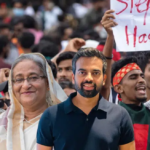The death of a 26-year-old former OpenAI researcher-turned-whistleblower has reverberated across the tech world, drawing reactions from prominent figures, including Elon Musk.
Suchir Balaji, an Indian-American and former employee of OpenAI, was found dead in his San Francisco apartment on November 26. Authorities have ruled his death a suicide, with no evidence of foul play. His identity was made public on Friday night, intensifying debates around the issues he had previously raised.
Allegations Against OpenAI
Balaji had been a vocal critic of OpenAI, the artificial intelligence company behind ChatGPT. In a recent interview with The New York Times, he accused the organization of violating copyright laws by training its generative AI models on original content without proper authorization.
“Generative models rarely produce outputs that are substantially similar to any of their training inputs, but the process of training a generative model involves making copies of copyrighted data. If these copies are unauthorized, this could potentially be considered copyright infringement, depending on whether the specific use of the model qualifies as ‘fair use,’” Balaji said during the interview. He emphasized concerns over AI replicating exact products used during training under the guise of “fair use.”
Balaji’s allegations are part of a broader controversy involving OpenAI and its practices. Notably, The New York Times has filed a lawsuit against the company over similar copyright infringement claims. According to The Indian Express, court filings reference Balaji’s access to critical internal documents relevant to the case.
Musk’s Response and Legal Feud with OpenAI
Elon Musk, a co-founder of OpenAI, responded to Balaji’s death with a comment on X (formerly Twitter). Musk, who has had a contentious relationship with OpenAI since his departure in 2018, expressed concern over the organization’s direction and handling of ethical issues.
Musk’s fallout with OpenAI began over disagreements about its transition from a non-profit entity to a for-profit company. Initially founded in 2015 to advance artificial intelligence for the “welfare of humanity,” OpenAI restructured in 2019 to form OpenAI LP, a for-profit arm. Musk has criticized this shift, filing a lawsuit to block the transformation and accusing the company of abandoning its original mission.
In a statement addressing Musk’s legal actions, OpenAI accused him of attempting to gain majority control during the company’s formative years. “Elon Musk’s latest legal filing against OpenAI marks his fourth attempt in less than a year to reframe his claims. In 2017, Elon not only wanted but actually created a for-profit structure for OpenAI. When he didn’t get majority equity and full control, he walked away and told us we would fail. Now that OpenAI is the leading AI research lab, Elon runs a competing AI company and is asking the court to stop us from pursuing our mission,” the statement read.
Broader Implications
Balaji’s death has reignited discussions around the ethical challenges posed by AI development and corporate responsibility. His criticisms of OpenAI highlight ongoing debates over the balance between innovation and ethical considerations in the tech industry.
As investigations continue, his story underscores the personal and professional stakes in the high-pressure world of artificial intelligence, where transparency, ethics, and accountability remain critical concerns.










